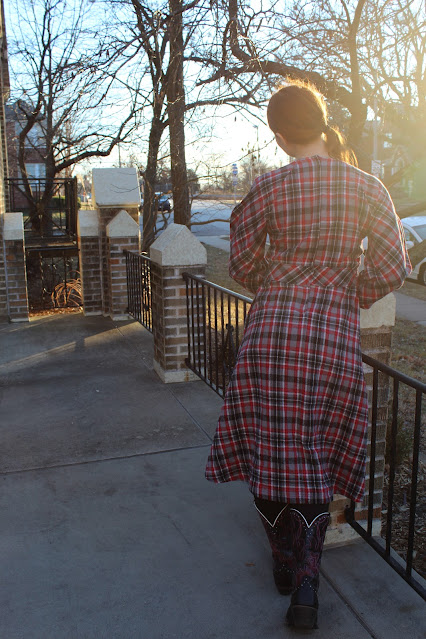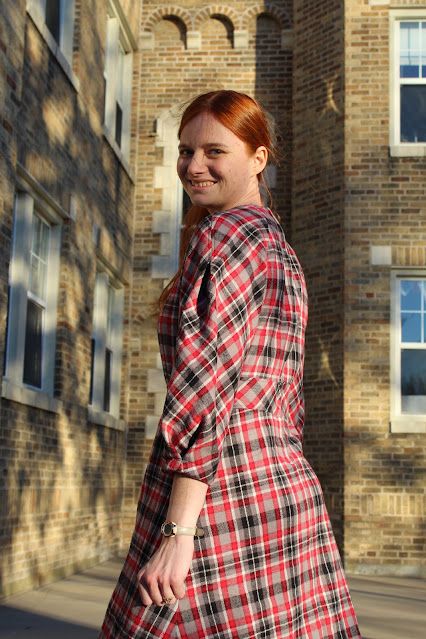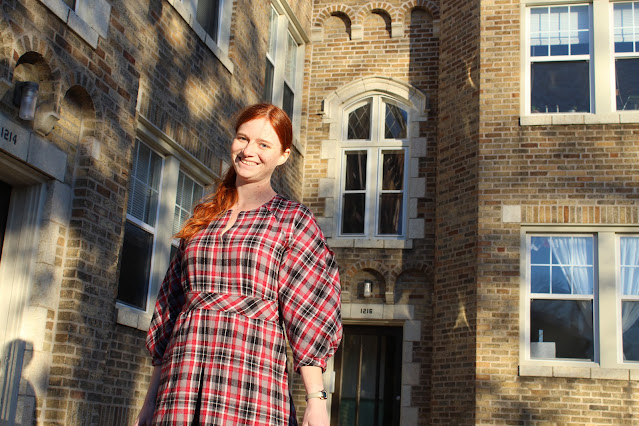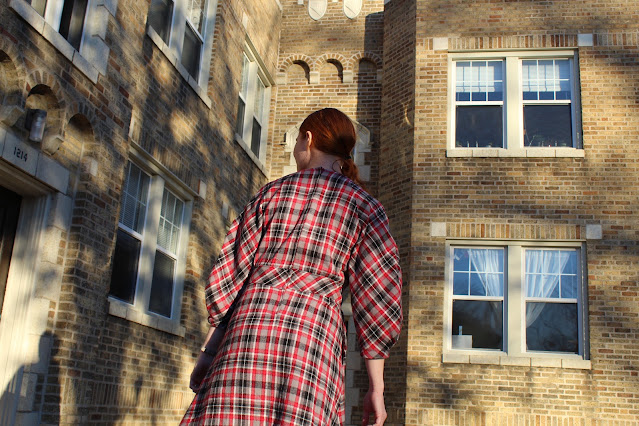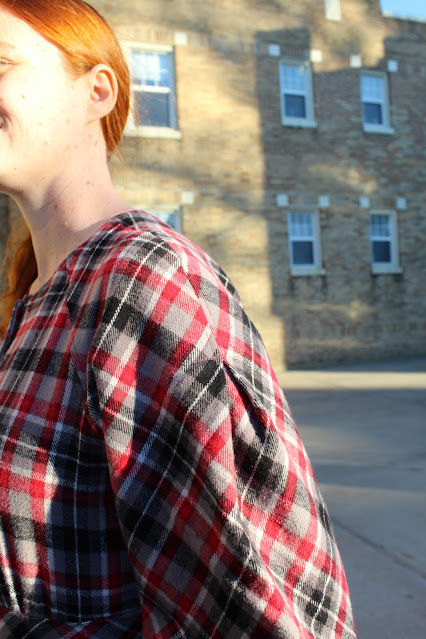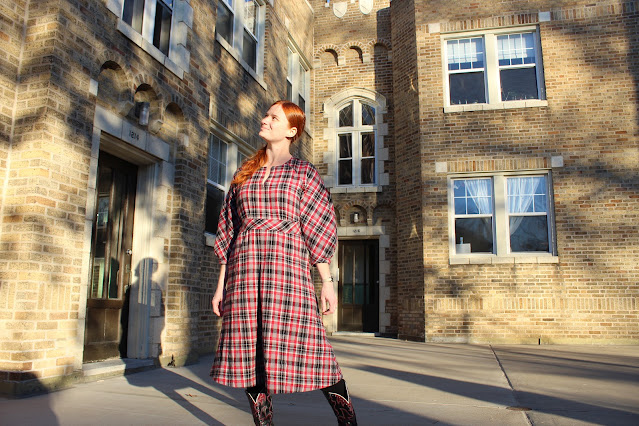When I discovered the City Sewing Room, where they sew donated fabrics for $1 a pound, last fall, my fabric stash began to grow. The sewing room was very conveniently located on my way home from work for a few months, until I changed jobs. While very fun and a great place to find beautiful stash additions, this wasn't necessarily a good thing. I have a huge fabric stash and very little space at the moment. My fabric stash does not need to grow.
One of my fabric acquisitions was a 6 yard cut of purple paisley cotton. I have a soft spot for paisley. And purple. Another was a 3 yard cut of green and white pinstripe shirting. I did not pick up these two fabrics with the intention of using them together. In fact, I originally snagged the shirting with the intention of using it for my sister's 1890's shirt waist, until I decided I wanted something of a darker green with more pronounced stripes for that project.
I went through my pattern stash to pick a pattern for the purple paisley. With 6 yards my options were wide open! McCall's 7184, a 1950's reprint skirt and blouse pattern, caught my eye. The purple paisley and the green pinstripe were stacked together and I quickly realized the two fabrics would pair nicely for this ensemble. According to the back of the envelope the full circle skirt with suspenders required over 5 yards of fabric and the blouse required just under 3. Good thing I had plenty of material to work with!
After cutting both pieces out I discovered those fabric estimates were wildly generous. I used less than 4 yards of material for the skirt and right around 2 yards for the bodice. I guess I can't complain as it's better to have extra fabric than not enough, but it is rather annoying that the pattern would have you buy so much more fabric than you actually need. If you were to buy fabric specifically for this project you would probably spend at least an average of $10 per yard for fabric and that's an extra $30 that you could have saved for another project! This doesn't really apply to me since I used cuts of fabric I picked up second hand for this project, but still!
Anyway, other than the questionable fabric requirements, I quite like this pattern!
The blouse is really great! It's cute, doesn't take too much fabric, fits nicely, and goes together quickly and easily. Nothing to complain about here!
I've already made myself a second version of the blouse and can see myself reaching for this pattern time and time again.
I have way more woven fabrics in my stash than knits so I'm always on the lookout for good woven top patterns and this one fits the bill!
As for the skirt, I love this finished garment! It's so much fun to wear!
If you fall in the bottom half of the measurements for your size, be prepared to take the waist in. I tried my skirt on prior to attaching the waistband facing and wound up taking an inch out of each side seam and adjusting the facing accordingly. This really isn't a big deal, just make sure to do a fitting before finishing the skirt if you decide to make this pattern.








































